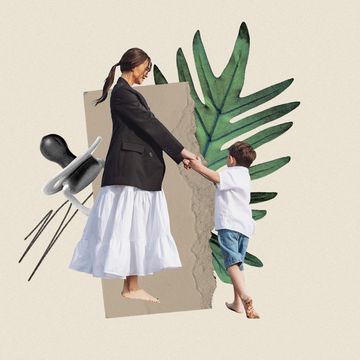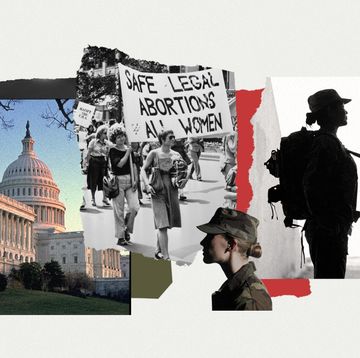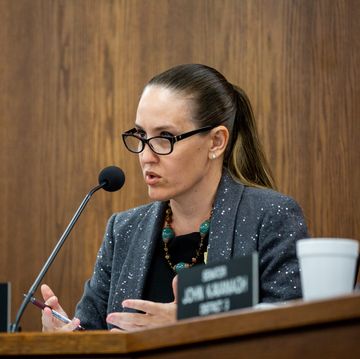Photo: Planned Parenthood Federation of America
It's hard to imagine a medical procedure in this country that carries the stigma and judgment that abortion does. Women's experiences are often seen through the lens of cultural and political battles. If a woman says that she's relieved after having an abortion, she may be judged for being heartless or unfeeling. If she says that she feels regret, anti-abortion activists use this to push for laws that restrict access to abortion or laws that assume women are incapable of making their own decisions without the interference of others.
So instead, we just don't talk about it. That's how abortion came to be discussed as an "issue" instead of an experience.
How can something that one third of women in the United States experience be the focus of intense public debate for decades, with hardly any real firsthand experiences at the center of the discussion? One word: stigma.
Women fear that when they disclose that they've had an abortion, they'll be judged–seen as irresponsible or selfish. Whatever a woman's reason for having an abortion, for some people it will never be good enough. If she had an abortion because she was too young, people may point to the 16-year-old who decided to raise a child. If she had an abortion because she couldn't afford to care for a child, people will ask what else she spends money on and why her family couldn't help. If she has an abortion because she already has children, people will ask why she couldn't have just one more.
All of these questions have good answers. But the point is that women shouldn't have to answer them at all. No woman should be forced to justify her decision for having an abortion. The decision about whether to have a child, end a pregnancy, or choose adoption is hers alone. Some women make that decision in consultation with their family, friends, their doctor, or their faith—and that's their decision, too.
It's important that women be able to share their stories and experiences openly if they choose to, so that they can connect with each other and begin to end myths and misconceptions about both the procedure and the women who have it. There's a big difference between sharing your story and being forced to justify your decision.
I know this firsthand. I had an abortion. It was the right decision for me and my husband, and it wasn't a difficult decision. Before becoming president of Planned Parenthood eight years ago, I hadn't really talked about it beyond family and close friends. But I'm here to say, when politicians argue and shout about abortion, they're talking about me—and millions of other women around the country.
Some people and organizations have spent years working to address abortion stigma and continue to lead the way, including Advocates for Youth, whose 1 in 3 Campaign is a powerful vehicle for sharing stories and deepening public understanding about abortion, and Exhale, which provides resources and support to thousands of people.
At Planned Parenthood, we see the impact of abortion stigma firsthand, in the women who delay getting reproductive health care because they fear they'll be labeled and judged. We see the effect of stigma on doctors, health center staffers, and others who help provide abortion services. And we see the impact in laws that regulate and restrict abortion in ways that would never happen with any other medical procedure.
As tough as the climate seems right now—and it does, particularly in my home state of Texas—I am encouraged and grateful for the courage and leadership of young people across the country.
Just last week, three high school teenagers approached me after a political rally. There were two young women and one young man, all of them looking impatient and excited. They told me about a new project they launched for women to share their stories about abortion via social media, in order to help decrease stigma. One of the young women began to cry as she talked about what it's like to see the forum she helped create provide connection and empowerment for women she's never met.
We have a long way to go to end abortion stigma in this country, no doubt about it. But those three high schoolers—and the women who share their stories here—show what's possible, and why it matters so much.
Related: Abortion: Not Easy, Not Sorry






